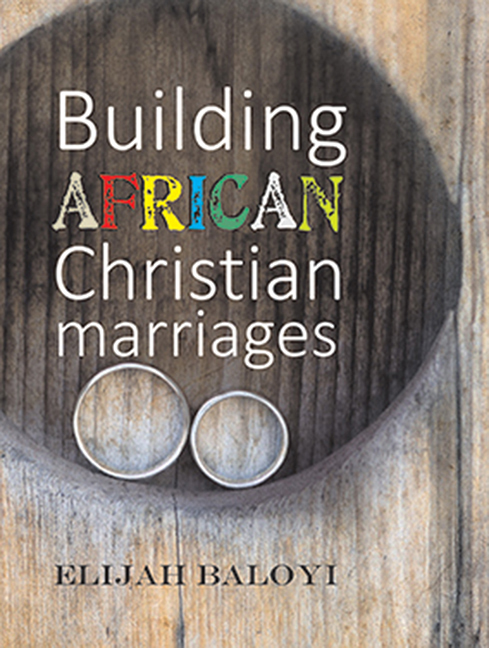Book contents
- Frontmatter
- Dedication
- Contents
- Foreword
- Preface
- Acknowledgements
- Chapter 1 Traditional obstacles in young African marriages
- Chapter 2 Excessive family intervention in African marriages
- Chapter 3 The influence of lobolo on the African marriage union
- Chapter 4 The negative influence of infertility on young African marriages
- Chapter 5 Some biblical teachings about marriage
- Chapter 6 Conclusion
- Appendix A comparison of the African and the biblical perspective on marriage
- References
- Index
Chapter 6 - Conclusion
Published online by Cambridge University Press: 14 February 2020
- Frontmatter
- Dedication
- Contents
- Foreword
- Preface
- Acknowledgements
- Chapter 1 Traditional obstacles in young African marriages
- Chapter 2 Excessive family intervention in African marriages
- Chapter 3 The influence of lobolo on the African marriage union
- Chapter 4 The negative influence of infertility on young African marriages
- Chapter 5 Some biblical teachings about marriage
- Chapter 6 Conclusion
- Appendix A comparison of the African and the biblical perspective on marriage
- References
- Index
Summary
Introduction
The main focus of this study was to research the three possible hindrances to young African marriages caused by either undermining or abusing the customs which had been followed for good purposes by African people. It was the intention of the book to also give pastoral guidelines to African Christians in choosing a partner and to find ways in which possible problems can be eliminated.
Findings
The findings of this book covered three areas of problems that usually occur as a result of the misunderstanding of or negligence towards some cultural aspects within African Christian marriages, particularly in the context of the Tsonga-speaking people of South Africa. It has to be noted that the three issues at hand are very closely related to each other, since they are all a result of the African life of communalism. If African people were enjoying the beauty of living together as families and clans, there would be no need to address these issues. The findings can be summarised as follows.
Excessive family intervention
Family intervention, influenced by communal life, was not a bad thing in itself, particularly if it was applied to upbuild one's marriage. Unfortunately, however, some people misused the custom to such an extent that couples could make no decisions at all about matters affecting their marriage. This African custom was initially aimed at assisting the young couple by giving them advice and guidance whenever they need it, not to dictate to them as if they were still children. The place of parents, in-laws and other relatives should be well-defined in one's marriage to avoid these problems.
Negative role of lobolo
This beautiful custom was not intended to give rise to any form of abuse or business dealing, but some people used it to subject women and even to make a lot of money out of it, either through misunderstanding or ignorance. Those who use lobolo as an excuse to beat or abuse their wives are not good custodians of African culture; they are people who would abuse their wives anyway, even if they had not given lobolo for them. Looking at the positive side of lobolo will help us build good African marriages. There are many good aspects and aims of lobolo, which African people can revise to give the custom its intended place in our marriages.
- Type
- Chapter
- Information
- Building African Christian Marriages , pp. 69 - 72Publisher: University of South AfricaPrint publication year: 2013



